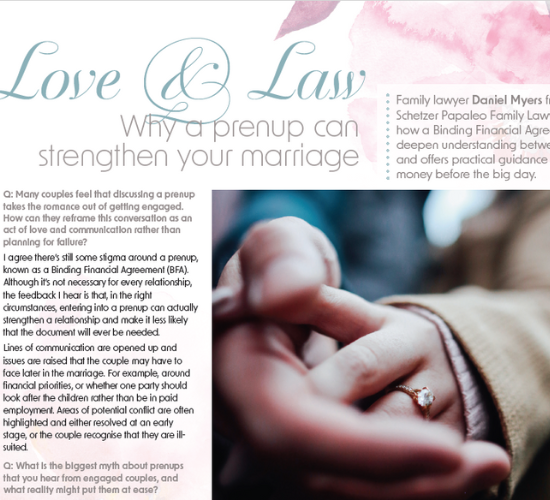Financial assistance from parents is an issue Family Lawyers are dealing with more and more often in the context of a subsequent separation. For example, with house prices soaring, it is common for children to look to their parents for assistance to get into the booming property market. In other cases, it could be in the form of an advance of money to meet their grandchildren’s school fees or to reduce the parties’ debt.
Disputes often arise around the characterisation of this financial assistance. Specifically, whether the money should be treated as a loan or a gift. If it was intended to be a loan, further issues may arise, such as whether interest was to be paid and when the loan itself was to be repaid.
Why does it matter?
If it is a gift, there is no expectation that the money will be repaid and can be claimed by the related party as a contribution. If it is a loan, there is an expectation that the funds will be repaid and this will result in a reduction of the net divisible asset pool.
What can the Court consider?
In considering whether the monies advanced were a loan or a gift, the Court will look at:
- whether any written loan agreement exists;
- the terms of the agreement, including repayment terms;
- whether any repayments have been made;
- evidence of discussions between the parties as to the existence of the loan and terms of the loan;
- whether security has been provided (e.g. a mortgage);
- whether and what representations have
been made to others (e.g. the bank, the ATO or Centrelink); - was the advance made more than 6 years
ago (as it may not be recoverable under the Statute of Limitations)?; and - any evidence that the advance was intended to be a gift.
What you need to do
- Loans should be in writing and signed by all parties.
- The terms of the loan need to be specified.
- Your parents should receive separate advice.
- Consider whether security can be provided.
- Act consistently within the terms of the loan (e.g. making repayments, paying interest).
- Consider using a financial agreement (which can be entered into before commencement of cohabitation/marriage (pre-nup), during a relationship, or after separation) to quarantine the advance for the benefit of the related party if it is a gift, or to ensure the loan agreement is binding on the parties if you separate.
Our team at Schetzer Papaleo Family Lawyers can provide you with the right advice and assist you by formally documenting the loan or gift in a way that best suits your family’s needs.


